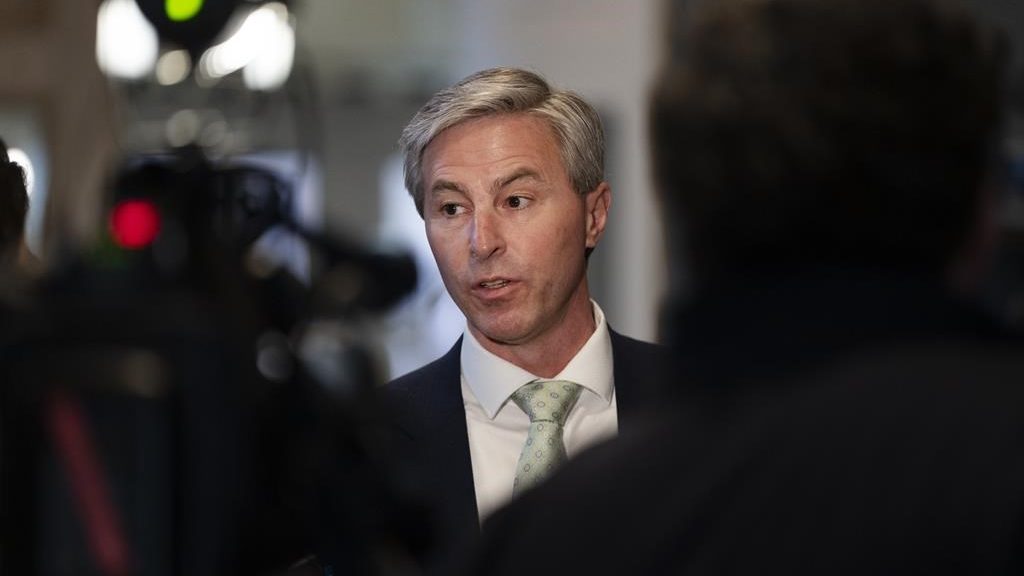Mayweather-Pacquiao leaves crowd bored, broken-hearted
Posted May 3, 2015 10:27:30 AM.
This article is more than 5 years old.
LAS VEGAS — Sometimes at a fight, you can feel hopes die. You can feel a crowd coming to the painful realization that what it wants is not what it’s going to get.
On Saturday night at the MGM Grand Garden Arena, the preliminary bouts passed almost in silence, the anthems barely caused a stir, and Michael Buffer, the Let’s Get Ready to Rumble man, had a frog in his throat.
Then Manny Pacquiao walked into the room, and it was as though someone had thrown a switch.
It wasn’t an elaborate entrance – he strolled in wearing a white t-shirt, accompanied by one of those sappy inspirational songs that he so loves warbling through the speakers. But if there was any doubt who would be getting the bulk of the love from the crowd, it was erased in that instant.
Floyd Mayweather Jr. followed soon after, undefeated, the greatest boxer of his generation, and kept his trek to the ring simple too – no Lil Wayne or Justin Bieber this time, which certainly suggested he was all business.
Mayweather was booed in a way normally reserved for politicians and unpopular sports commissioners.
So there was the script – indomitable Manny, called upon to knock Mayweather off his perch, to end The Best Ever chat once and for all, to once again be the Pacquiao who blasted out Miguel Cotto and Oscar De La Hoya and Ricky Hatton in succession with power and speed and unstoppable waves of punches.
And it looked like that might happen … for a few seconds in the fourth round. It looked like it would be a fight.
After being held at bay for the first three stanzas, with Mayweather comfortably setting up office in ring centre, controlling the tempo with his jab and trying to walk Pacquiao into a right hand, Pacquiao made a bull rush and hit pay dirt. He rocked Mayweather. Hurt him, at least a little bit.
The people who had paid a fortune to get into the building, joined no doubt by the millions around the world who had shelled out for pay per view, could imagine in that instant they were about to see something no one had ever seen before: Floyd Mayweather Jr. losing a professional boxing match.
How long did it take that hope to be fully snuffed out? Depends on whether your heart or your head was in charge. At the end of the fight, Pacquiao sounded entirely sincere saying that he’d thought he’d won, and perhaps his most fervent believers were still with him then.
But as the rounds rolled by, as Pacquiao’s flurries became fewer and farther between, as Mayweather continued to potshot, continued to make his punches count, shaking Pacquiao at times, making him more and more wary of rushing in, an indelible pattern emerged: Mayweather controlling the centre of the ring with his jab and his reach; Mayweather occasionally falling back in to the ropes, then holding, or sliding away, or trying to sucker Pacquiao into a counter.
Pacquiao trying to solve the puzzle, and failing like everyone else.
By the eighth, the ninth, the tenth, Pacquiao was too far behind on points to outhustle Mayweather and win a decision (Mayweather’s one failing is that he is quite content to go long stretches without throwing punches) and showed no signs that he could knock Mayweather out. In fact, it was Pacquiao who absorbed most of the heavier shots late in the fight.
That’s when the sound in the room changed. That’s when reality set in. That’s when most everyone understood that this guy wasn’t going to do it, either.
When the scorecards were announced – 118-110 and 116-112 twice (Sportsnet had it 117-111) – there wasn’t any gasp of surprise. The boos that rained down again, that all but drowned out Mayweather’s post-fight interview weren’t saying “We were robbed.”
They were saying: “We are broken hearted.”
And yes: “We were bored.”
They certainly shouldn’t have been surprised.
The days leading up to the fight had been both familiar and strange.
What seemed unchanged from days past was the ritual of fight week, the combatants’ arrivals on site, the press conference, the weigh-in, were unusually short on theatrics and long on pyrotechnics. Mayweather, for all of his swaggering, self-created “Money” persona was extraordinarily low key, which didn’t leave Pacquiao much to work off as the ever-smiling, God-praising designated good guy here.
But whatever was lacking in trash talk was made up for in scale, especially on weigh-in day, when 10,000 people piled into the Grand Garden Arena, paying for the privilege of watching the fighters strip down and step on the scales, a three-minute main event that came at the end of a three-hour preamble.
The other recurring theme from those (now rare) occasions when boxing cracks the mainstream was the emergence of soapbox preachers, those who object to Mayweather’s character (he is, without question, a habitual abuser of women) and/or to point out the sport’s inherent immorality.
The former harkened back to the “draft dodgers” Jack Dempsey and Muhammad Ali, who failed the character test for some in comparison to more patriotic opponents (and to the larger discussion about how we should feel about bad people who create things we value – should you think about Miles Davis beating women every time you listen to Flamenco Sketches?), the latter to a debate that has been ongoing since Cain and Abel, and which has resulted in boxing being declared illegal in various jurisdictions for various lengths of time over the last 300 years.
Boxing isn’t good for human beings. Just ask Benny “Kid” Paret. The intent is to concuss. The structure of the business is built on exploitation. There are all kinds of perfectly sound reasons to object.
But it’s not like boxing can’t be easily avoided in the culture. No one is being forced to watch. And given that the sport has the survival instincts of Keith Richards, given that as a society we are willing to let people risk their health for our amusement in a variety of arenas, given that there will always be people willing to fight and people who want to watch them, the opportunistic chest beating that always precedes a big fight tends to be a waste of oxygen.
So nothing out of the ordinary there. Still, in other ways the whole week felt a bit off – inorganic, like a hologram of a Big Fight that looked right and sounded right, but when you went to touch it wasn’t really there. A prefabricated happening in an era of prefabricated, empty celebrity. A big deal because people wanted to experience a big deal, but disconnected from the string of super fights that dot the preceding decades.
These guys aren’t Ali and Frazier. They aren’t even Hagler and Leonard or Tyson and Spinks. They can’t be, because boxing doesn’t mean anything now. And that’s why it became a kind of a nostalgia show even for those too young to remember the way it used to be, a blown up celebration of the next best things.
If the fight had turned out to be a classic – or at least had enough juice to make a rematch desirable – then perhaps it might have led to something.
Instead … well, the question most asked this week after “Who do you think will win?” was “What comes next?”
The answer you’ll hear more than any other now:
“Who cares?”










